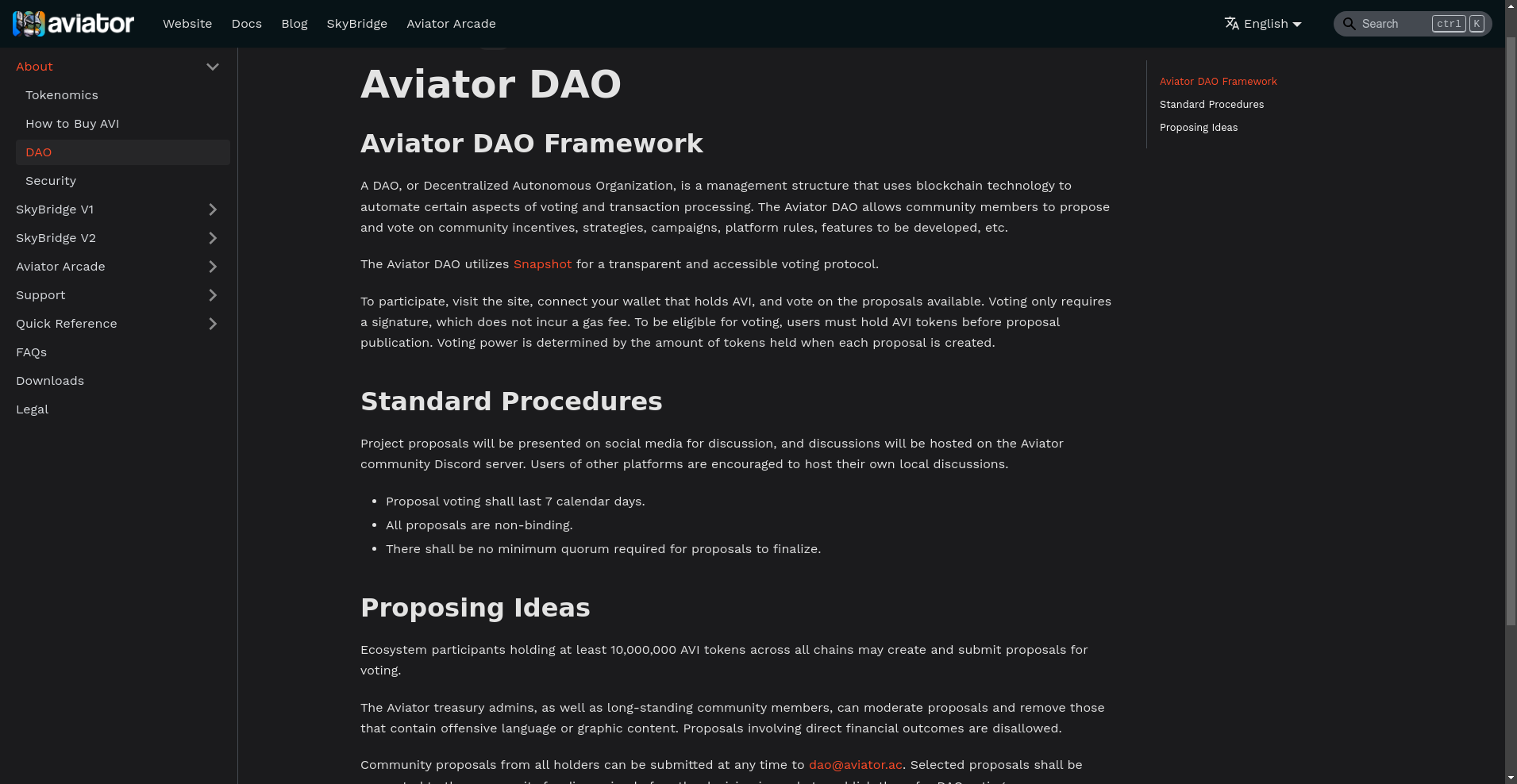Aviator Review: Scam or Legit Crypto? Uncovering All The Red Flags

What Exactly Is Aviator?
Aviator presents itself as an innovative project aiming to revolutionize blockchain interoperability and on-chain gaming through its SkyBridge and Arcade platforms. It claims to offer seamless token and NFT transfers across multiple chains, alongside engaging gaming experiences rewarded in its native AVI token. Promising a multi-faceted ecosystem with DAO governance, a KYC-certified team, and partnerships with Polygon and Chainlink, the project aims to position itself at the forefront of DeFi and gaming innovation.
However, in this investigative article, our goal is to critically evaluate Aviator's actual legitimacy, security posture, and overall transparency. With many crypto projects making bold claims, it is crucial to dig beneath the surface and identify any warning signs or red flags that investors should be aware of before considering participation.

Who Is The Team Behind Aviator?
One of the first questions any skeptic should ask is: Who are the founders and core developers? According to available information, the Aviator team is KYC-certified, composed of individuals with industry experience from projects like Shiba Inu and professionals in advertising, government, and accounting. While such credentials sound reassuring, the lack of detailed founder identities or verifiable LinkedIn profiles raises concerns about transparency.
- The team emphasizes their expertise, but they do not disclose specific names or backgrounds beyond certification and vague bios.
- The project roadmap includes multiple ambitious features—SkyBridge V2, Arcade updates, and cross-chain partnerships—yet there is little publicly available code or development activity shown to support ongoing progress.
- Community engagement seems active on social channels, but the overall transparency about team ownership and decision-making remains limited.
In summary, while the team claims legitimacy through KYC, the absence of verifiable identities or detailed roadmaps makes it hard to fully trust their promises. Skeptics should exercise caution as the road from promise to delivery can often be long and uncertain.

Aviator Security Audit: A Deep Dive into the Code
The security integrity of any blockchain project is paramount, especially when financial transactions and assets are involved. Unfortunately, the available audit data for Aviator's smart contracts comes from a report by Hacken, a reputable cybersecurity firm, which conducted a thorough audit of their platform.
- The Hacken audit report indicates no critical vulnerabilities, with all security issues marked as resolved.
- The audit overview suggests the code has been reviewed to meet industry standards, and there are ongoing bug bounty programs in place to encourage community testing.
- While the audit results are promising, audits do not guarantee immunity from future exploits. Smart contract security can be upgraded or compromised, and continuous monitoring remains essential.
Investors should recognize that although the audit appears comprehensive, the crypto space is fraught with exploits and vulnerabilities that might not be immediately apparent. Relying solely on a single audit report can be risky, especially if the audit scope was limited or if code updates were made post-audit.
Aviator Tokenomics: A Fair System or a Trap?
The AVI token is positioned as the core utility asset within the Aviator ecosystem, used to reward players, developers, and possibly for governance. Its total supply is approximately 9.24 billion tokens, with a circulating supply of nearly 6.96 billion, and a market cap of around $2.47 million. The low price per token ($0.0003553) indicates a high inflation potential or an early-stage project still establishing liquidity.
- The distribution details remain opaque. There is little public insight into how tokens are allocated across founders, team, treasury, community rewards, or liquidity pools.
- Without transparent vesting schedules or clear use cases, the risk of token dump is high, potentially causing drastic price declines once initial hype subsides.
- Utility claims—such as rewards in games or DAO governance—are promising but unverified if the actual tokenomics and distribution mechanics are not openly disclosed.
Investors should be wary of high token inflation, unclear distribution, and the potential for significant price volatility driven by large holder dumps.
Is Aviator a Ghost Town? Checking for Real Activity
Despite its ambitious roadmap, the actual development activity appears limited. The project has undergone multiple audits, and the latest updates suggest ongoing progress, but visible commitment in the form of code commits, developers’ updates, or active testnets is minimal or poorly documented.
While the platform claims partnerships, such as with Polygon and Chainlink, there is little concrete evidence of live, functional wide-scale integrations or user onboarding. The Arcade platform still seems in early beta, with placeholder content like "No Trending Games Available." This suggests that beyond marketing, real end-user activity or community growth might be sluggish or artificially inflated.
In this context, the project's hype might be disconnected from tangible progress, a common red flag in the crypto space. Potential investors should verify actual activity, community size, and code updates before committing funds.
What Aviator's Legal Documents Are Hiding
- Terms of service and privacy policies are present, but the clarity on user rights, data handling, and dispute resolution is limited.
- There are no clear disclaimers regarding the risks of loss, the non-custodial nature of the platform, or the unregulated environment.
- Absence of detailed licensing or regulatory compliance statements could expose users to legal vulnerabilities—especially with features like staking, rewards, or DAO voting.
Without comprehensive legal safeguards, projects like Aviator may leave users exposed to unforeseen liabilities or disputes, adding another layer of risk for potential investors.
Final Verdict: Should You Risk Investing in Aviator?
Based on the evidence gathered, Aviator presents an ambitious vision for blockchain gaming and interoperability, backed by some security audits and partnerships. However, significant red flags—such as limited transparency about team identities, unclear token distribution, early-stage development, and unverified activity—raise serious concerns.
- Positive Points:
- Security audit from a reputable firm with no critical issues found
- Partnerships with Polygon and Chainlink
- Active product roadmap suggesting future growth
- Major Red Flags:
- Lack of verifiable founder identities
- Opaque tokenomics and distribution
- Minimal real-world activity or user growth evidence
- Early stage and incomplete product deployment
- Potential legal ambiguities
Investors should proceed with caution, conducting their own due diligence and avoiding large investments until more transparency and proof of real progress emerge. Remember, in the crypto world, the most promising projects can sometimes mask underlying weaknesses or speculative hype.

Amanda Harris
Technical Security Educator
Security professional passionate about the "human firewall." I translate complex crypto threats into simple, actionable security habits for everyday users.
Similar Projects
-
DISTRIBUTE
DISTRIBUTE Project Review: Crypto Scam Checker & Future Insights
-
LotoStake
Crypto Scam Checker Review: Is LotoStake a Legit Project or Scam?
-
BEEVO
Review of BEEVO: Crypto Scam Checker & Project Scam Review 2024
-
Santa 2025
Santa 2025 Review: Is This Crypto Project a Scam? Crypto Scam Checker & Analysis
-
Sealonomics ($SEAL)
Review of Sealonomics ($SEAL): Crypto Scam Checker and Project Scam Review